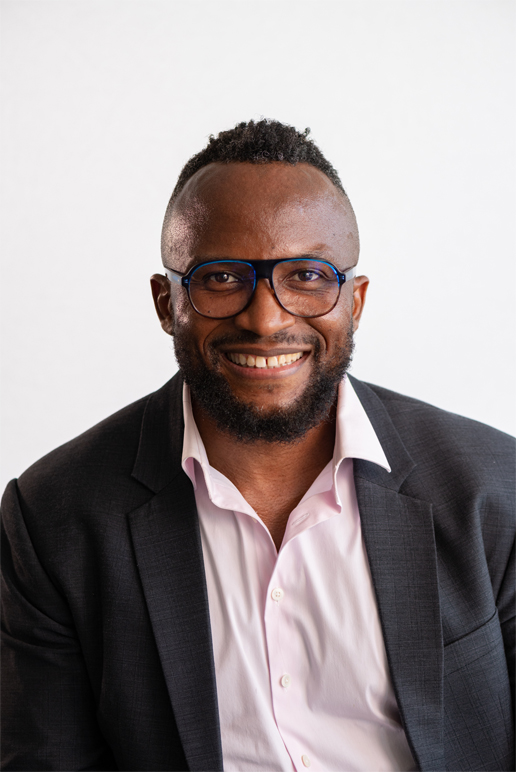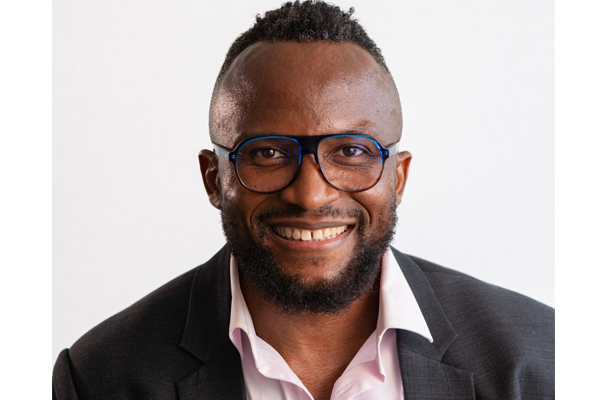The lived experience of Black and minority communities should continue to play a central role in promoting racial equity at work, according to Tesco’s Campaigns Director Kené Umeasiegbu, who has also been shortlisted for this year’s Black British Business Awards (BBBAwards).
In this week’s interview with Fair Play Talks, Kené Umeasiegbu shares the importance of valuing contributions from underrepresented groups, like Black professionals and people from working class backgrounds. He talks about how he is personally promoting racial equity at work, and what more organisations can do to stamp out workplace discrimination. He also provides a glimpse into his career journey along with advice to other Black professionals on how to get ahead.
Fair Play Talks: Can you briefly tell us about your career journey to date?
Kené Umeasiegbu: I studied geology at the University of Nigeria. After graduation, I went to work for youth leadership organisation, AIESEC, which I joined as a student. That gave me the opportunity to start building an international career, living in Nigeria, Estonia, Brazil and the Netherlands, later moving to the UK in 2003. Over 22 years, I’ve built a career in sustainability (human rights, climate change and food security) and corporate affairs (campaigns, advocacy and stakeholder engagement). I’ve worked at Cadbury, the Carbon Trust and now Tesco. I’m also a trustee of the Joseph Rowntree Foundation and Leaders’ Quest Foundation.
Fair Play Talks: What specific challenges did you encounter along the way to the top?
Kené Umeasiegbu: Having grown up in Nigeria, my biggest career challenge has been adapting to different cultural styles. Sometimes it was language barriers and other times, diverse communication styles, as I’m quite direct. There were occasional challenges of low expectations from some colleagues and managers. However, I was also lucky to have had more allies and sponsors than I had barriers. For instance, my boss during my Cadbury days has remained a mentor and a sounding board for nearly 20 years – even in her retirement. I’ve also had great sponsors at Tesco supporting my career.
Fair Play Talks: In your opinion, are there any specific challenges that Black professionals face on their journey to the top that White/other groups do not face in your industry?
Kené Umeasiegbu: The retail industry has a fairly good level of diversity in its general workforce. However, this is not yet the case at leadership levels. In this sense, it’s not that different from other industries. I think this low diversity at management levels can have knock-on effects that can be a challenge for Black professionals, including feeding a cycle of low expectations; lack of role models or mentors with shared experiences; and feelings of not belonging. For first generation Black professionals, there is often another dimension of culture clash that can hinder career growth.
Fair Play Talks: Are you involved in promoting Black talent, race equality or other diversity initiatives?
Kené Umeasiegbu: Being a good role model starts with my performance at work. Beyond that, I mentor colleagues matched to me through our Race and Ethnicity network at Tesco, or who approach me directly. On a more structural level, I supported the creation of Tesco’s Black Action Plan. And in daily interactions, I reach out to Black colleagues I meet to help foster a sense of a workplace where everyone is welcome, to which Tesco aspires. Outside Tesco, I’ve continued to be a mentor and career coach for young Black talent for over two decades, starting from my time working at AIESEC.

Fair Play Talks: In your opinion, are companies doing enough to stamp out discrimination and what more could they be doing to promote racial equity in the workplace?
Kené Umeasiegbu: Whilst the picture may vary by sector and geography across UK, I think businesses are doing a lot to address overt discrimination. However as with everything, there’s always more that can be done, including understanding and tackling implicit and systemic bias. Businesses have a role in addressing historical structures of inequity in society, which left unchanged, would simply perpetuate inequality. A lot can be learnt from efforts in addressing gender inequality. An inclusive and equitable society would benefit even more from the contribution of black professionals as well as professionals from working class backgrounds and from the LGBTQ+ community.
Fair Play Talks: Given the focus on diverse talent, what more can organisations be doing to attract Black/minority talent, as well as retain them?
Kené Umeasiegbu: Business-as-usual will not get to the diverse workforce we want. If an organisation is serious about talent, one action they can take is to enlist diversity experts. Based on my lived experience, businesses can start with reviewing their recruitment for unconscious bias: which universities are targeted for hiring? Are there other routes in – such as paid internships, work experience and apprenticeships? Once hired, colleague networks help connect underrepresented colleagues. Mentorship and sponsorship help grow talent. Management can monitor its talent pipeline to spot early barriers. Long-term, outreach to underrepresented communities can help inspire school-age kids from diverse communities.
Fair Play Talks: In your opinion, can organisations promote equality and fairness to enhance belonging and inclusion that will resonate with all groups?
I am a fan of organisations accessing all the talent available in society, regardless of gender, ethnicity, social class or sexuality. This starts with a statement but needs much more to become reality. Addressing one element of fairness should not pitch an underrepresented group against others. For instance, targeted action may focus for a while, on a group facing particular barriers or experiencing a historical opening. However, it’s important the process of building diversity does not end with that group. Often what works in creating gender or racial diversity can also be applied to addressing diversity in class or sexuality.
Fair Play Talks: Can the Black and other minority communities be doing more to promote race equity?
Kené Umeasiegbu: The lived experience of Black and minority communities should continue to play a central role in promoting race equity. This includes role modelling success stories from our communities, proposing tangible solutions that can promote race equity, community organising and working with other underrepresented groups to grow leverage. It’s also important to work more effectively with allies. Even though it can sometimes feel burdensome, we should embrace the role we can play in educating others, not just about the real challenges that persist, but also about tangible solutions, including the importance of allies.
Fair Play Talks: What was your reaction when you heard that you’re one of the 2022 Black British Business Awards (BBBAwards) finalists?
Kené Umeasiegbu: I was very surprised and humbled to be nominated. I am grateful for the nomination – I still don’t know who nominated me. I am usually more comfortable focusing attention on ideas around a fairer society and a more sustainable world, rather than on my career. However, I am learning that sharing my story can inspire others. So I am happy to play my part.
Fair Play Talks: How important are awards and organisations like The BBBAwards in the UK to promote Black/minority talent and Black role models?
Kené Umeasiegbu: The Black British contribution to UK entertainment, sports and politics is more visible than in careers that tend to be out of the public eye. Awareness of the range of careers to which young black and minority talent can aspire is key to inspiring and attracting the next generation. And awareness starts with visibility and role modelling. By celebrating black and minority talent in business, the BBBAwards is playing an important role in raising this awareness and increasing inspiration.
Fair Play Talks: What advice would you give to young Black/minority youth to encourage them to pursue their dream job or business venture?
Kené Umeasiegbu: There are many stories about real barriers to black achievement. But there are also many stories of success and allyship in the UK. I think that realistic stories of success are more motivating than feeling the entire world is against us. So, I encourage young talent to seek out role models, stories of inspiration and if possible, a mentor to guide their aspiration. Talent and luck can play an important role in career success, but discipline, consistency and growing from feedback are much more important. And it helps to be passionate about an idea that can make a positive contribution.
Fair Play Talks: Who is your inspiration/role model in the diversity, equity and inclusion (DEI) space?
Kené Umeasiegbu: I am in awe of trailblazers – those pioneers who carve a new path where none existed and achieve that which was thought impossible. Some people who inspire me are three black British women: Diana Abbott MP, Baroness Doreen Lawrence – justice reform campaigner, and Dame Sharon White – economist and current Chair of the John Lewis Partnership. And one non-Brit: Dr Ngozi Okonjo-Iweala – economist and head of the World Trade Organisation.
Fair Play Talks: What podcast/vlog/book would you recommend to help other Black professionals get ahead?
Kené Umeasiegbu: I love reading biographies of trailblazers. I try to learn the steps that got them where they are. Sometimes the detailed telling of a life story can be boring for those reading it for entertainment. But when you read it for guidance, it can offer a roadmap for your own journey. Barack and Michelle Obama’s autobiographies are really good reads. I suggest reading the story of anyone who inspires you, irrespective of race. They often contain the secrets to their success which you can adopt.







































